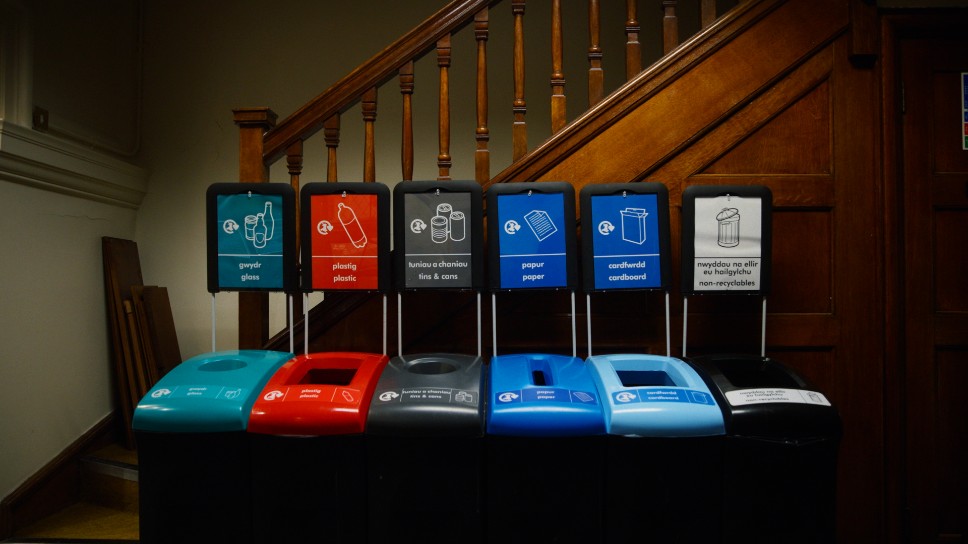
Getting workplace recycling sorted
Sortio ailgylchu yn y gweithle
From today (Saturday, April 6), it will become law for all businesses, charities, and public sector organisations to sort their waste for recycling.
The changes will increase recycling and reduce the amount of waste sent for incineration and to landfill.
The Workplace Recycling Regulations will require all business, public and third sector workplaces to separate key recyclable materials in the way that householders already do across most of Wales.
The following materials will need to be separated for collection, and collected separately:
- Food
- Paper and card
- Glass
- Metal, plastic and cartons
- Unsold textiles
- Unsold small waste electrical and electronic equipment
Putting the recycling in different bins will improve its quality, making it more likely the materials can be used by Welsh businesses instead of being exported.
There will also be a ban on:
- Sending food waste to sewer (any amount)
- Separately collected waste going to incineration and landfill
- All wood waste going to landfill
Cabinet Secretary for Climate Change, Huw Irranca-Davies said: “Wales is already the best in the UK for domestic recycling and third best in the world.
“We now want to improve the quality and quantity of recycling from workplaces. This is an important step towards reaching zero waste, reducing our carbon emissions and tackling the climate emergency.
“We want to keep materials in use for as long as possible. With the costs of materials rising, keeping high quality materials in use will help our economy and support our supply chains.
“It will also improve the quality and quantity of recyclable materials collected from workplaces, which will in turn capture important materials to be fed back into the Welsh economy.”
ENDS
Notes to editors
Notes to editors
Who the law applies to:
All businesses, charities and public sector organisations will need to separate their waste.
This includes:
- Hospitality and tourism - restaurants, bars, pubs, bed and breakfasts, hotels, campsites and caravan parks, holiday accommodation, and licensed premises
- Showgrounds
- Service stations and petrol stations
- Entertainment and sports venues including leisure centres
- Transport - bus stations, railway stations, seaports, airports, and heliports
- Care and nursing homes
- Pharmacies, GP surgeries, dental surgeries, and other primary care settings
- Construction sites
- Factories and warehouses
- Car garages
- Education - universities, colleges, and schools
- Garden centres
- Heritage buildings
- Libraries and museums
- Offices and workshops
- Places of worship
- Prisons
- Outdoor markets and festivals
- Retail
- Agricultural premises
The only workplace that has an additional 2 years to comply is NHS hospitals and private hospitals.
The Code of Practice gives you more detailed information about the new workplace recycling law and how should comply. It is important you read this alongside the guides.
WRAP’s Business of Recycling website has guides and free downloadable communication resources for your workplace.
